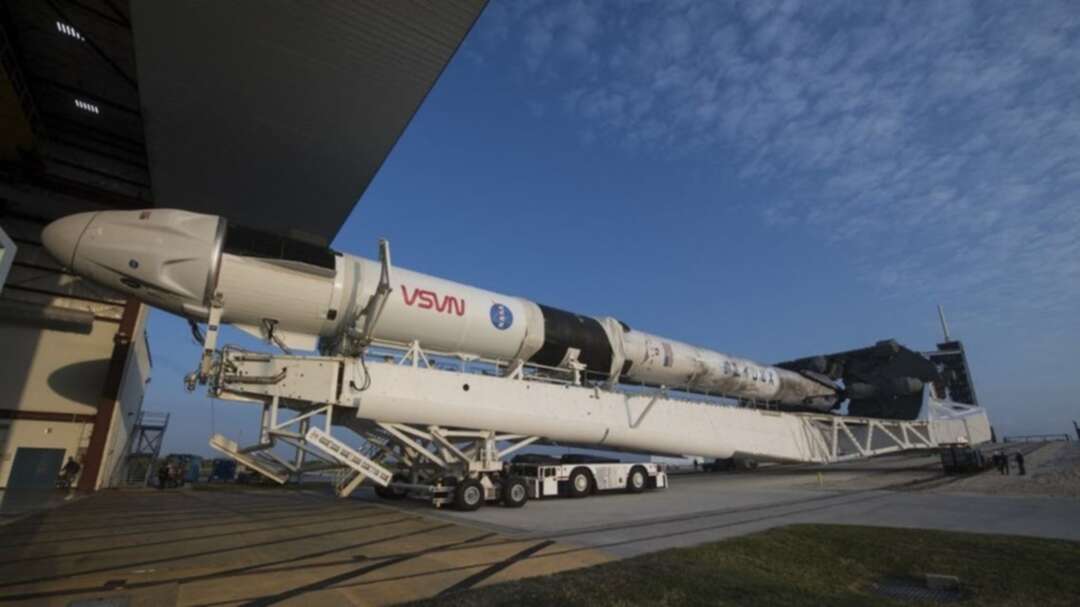-
NASA chooses SpaceX to take humans back to moon

NASA has selected SpaceX to land the first astronauts on the surface of the Moon since 1972, the agency said Friday, in a huge victory for Elon Musk's company.
The contract, worth $2.9 billion, involves the prototype Starship spacecraft that is being tested at SpaceX's south Texas facility.
"Today I'm very excited, and we are all very excited to announce that we have awarded SpaceX to continue the development of our integrated human landing system," said Lisa Watson-Morgan, NASA's Human Landing System program manager.
SpaceX beats out Jeff Bezos' Blue Origin and defense contractor Dynetics to be the sole provider for the system, a surprising break from the past when NASA has chosen multiple companies in case one fails.
Industry analysts said the decision underscores the company, founded by Musk in 2002 with the goal of colonizing Mars, as NASA's most trusted private sector partner.
Last year, SpaceX became the first private firm to successfully send a crew to the International Space Station, restoring American capacity to accomplish the feat for the first time since the Shuttle program ended.
For its Moon lander bid, SpaceX put forward its reusable Starship spacecraft, which is designed to carry large crews and cargo for deep space voyages, and land upright both on Earth and other celestial bodies.
Prototypes of the vessel are currently being put through their paces at the company's south Texas facility, though all four versions that have so far attempted test flights have exploded.
Under the Artemis program to return humans to the Moon, NASA wants to use the Space Launch System rocket to launch four astronauts on board an Orion crew capsule, which will then dock with a lunar space station called Gateway.
Starship will be waiting to receive two crew members for the final leg of the journey to the surface of the Moon.
The idea is for Gateway to be the go-between but for the initial mission Orion might dock directly with Starship, Watson-Morgan said.
The astronauts would then spend a week on the Moon before boarding Starship to return to lunar orbit, then take Orion back to Earth.
Separately, SpaceX has plans to combine the Starship spaceship with its own Super Heavy rocket, to make a combined vessel that will tower 394 feet (120 meters) tall and be the most powerful launch vehicle ever deployed.
Humanity last stepped foot on the Moon in 1972 during the Apollo program.
NASA wants to go back and establish a sustainable presence, complete with a lunar space station, in order to test new technologies that will pave the way for a crewed mission to Mars.
In 2019, then vice president Mike Pence challenged NASA to land the first woman and the next man on the Moon by 2024, but it's likely that timeline will be relaxed under President Joe Biden.
Another change under the current administration is its stated goal of placing the first person of color on the Moon under the Artemis program.
source: AFP
Image source: AFP
Levant
You May Also Like
Popular Posts
Caricature
BENEFIT Sponsors Gulf Uni...
- April 17, 2025
BENEFIT, the Kingdom’s innovator and leading company in Fintech and electronic financial transactions service, has announced its sponsorship of the “Innovation and Sustainable Technology Solutions Competition (GU - IST Solutions), hosted by Gulf University at its main campus.
This strategic sponsorship reflects BENEFIT’s active role in advancing technological innovation and fostering sustainable solutions to future challenges. It also seeks to empower Bahraini youth by enhancing their skills, capabilities, and competitiveness in innovation and solution development—contributing meaningfully to the broader goals of sustainable development across all sectors.
As part of BENEFIT’s active involvement in the competition, the company has announced that Hanan Abdulla Hasan, Senior Manager of Public Relations and Communication, will serve on the competition’s supervisory committee. Her upcoming participation reflects BENEFIT’s forward-looking commitment to championing academic and professional excellence.
Commenting on the occasion, Hanan Abdulla Hasan, Senior Manager of Public Relations and Communication at BENEFIT, said, “We are privileged to support this pioneering initiative, which aligns seamlessly with BENEFIT’s enduring commitment to fostering innovation and nurturing the potential of Bahrain’s youth. Our participation is rooted in a deep sense of social responsibility and a firm belief in the pivotal role of innovation in shaping a sustainable future. Through such platforms, we seek to empower the next generation with the knowledge, skills, and foresight required to develop impactful solutions that address future challenges, in line with the United Nations Sustainable Development Goals 2030.”
Dr. Aseel Al Ayash Dean of the College of Engineering in Gulf University commented, “We extend our sincere gratitude to BENEFIT for their generous sponsorship and support of the Innovation and Sustainable Technology Solutions Competition. This contribution plays an instrumental role in helping us achieve the strategic goals of this initiative, namely, cultivating a culture of innovation and sustainability, encouraging efforts that address the imperatives of sustainable development, and enhancing the practical and professional capabilities of our students and participants.”
The event will bring together a diverse spectrum of participants, including secondary school students, university undergraduates, engineers, industry professionals, entrepreneurs, academic researchers, and subject matter experts representing a wide range of disciplines.
The competition seeks to inspire participants to develop and present innovative, sustainable technologies aimed at addressing pressing environmental, social, and economic challenges. It encourages the formulation of business models that integrate advanced technological solutions with core principles of sustainability. Moreover, it serves as a platform for emerging leaders, entrepreneurs, and innovators to contribute to the advancement of the Sustainable Development Goals, promote the ethos of responsible technology, and demonstrate its transformative potential across various sectors.
Attendees will have the opportunity to view a series of project presentations submitted by participants, covering diverse areas such as eco-friendly product design, smart and sustainable innovations, renewable energy technologies, water conservation and management, waste minimisation and recycling, green architectural solutions, and sustainable transportation systems. Outstanding projects will be formally recognised and awarded at the conclusion of the event.
opinion
Report
ads
Newsletter
Subscribe to our mailing list to get the new updates!





















